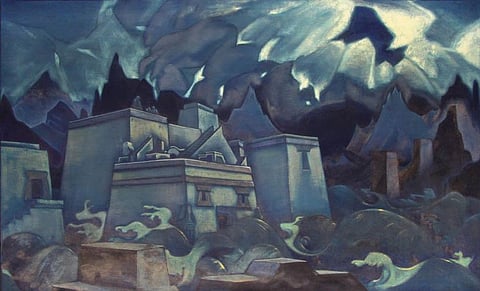Plato stated that the founding fathers of Atlantis were half-gods and half-human beings. They built an 'Utopian' society and grew into a powerful navy force. Their residence consisted of concentric islands comprising precious metals like platinum, gold, and silver, as well as a diverse range of unique and rare biodiversity. The location of the island has been the subject of much speculation, with some claiming it is located in the Mediterranean, whereas others claim it is close to Antarctica, or the Caribbean, in the Pacific ocean, or even near to Spain.


